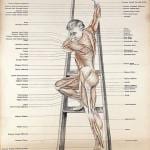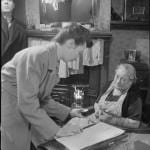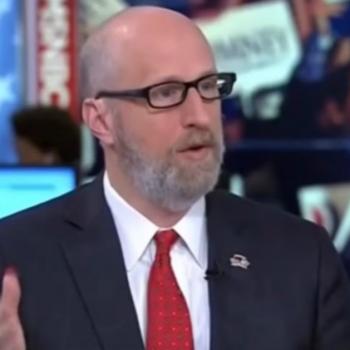Josh Zeitz explains (did so even before Hillary versus Donald):
The president did it again. Governing unapologetically by executive fiat, he steamrolled over Congress and issued a sweeping order that was sure to raise the ire of his Republican opponents.
Their complaint was as familiar as his offense. Big, potentially divisive challenges should be resolved through a deliberative, bipartisan legislative process, Republicans insisted, and not by diktat. “If the change has any merit at all,” groused a certain former GOP presidential nominee, “more time should have been taken in working it out so as to assure wholehearted co-operation instead of springing it upon an unprepared country with the omnipotence of a Hitler.” (That’s right. Hitler. He went there.)
John McCain complaining about Barack Obama’s executive order on immigration? Nope. That was Alf Landon, the former Kansas governor, rebuking Pres. Franklin Delano Roosevelt. The year was 1939—exactly 75 years ago—and FDR had just announced that he was moving Thanksgiving up by one week.
The origins behind the change were innocent enough.
Innocent, that is, if you are not a critic of neo-liberalism.
In August 1939, leaders from the American Retail Federation and the National Retail Dry Goods Association (the latter of which represented over 5,700 department, specialty and dry goods stores nationwide) contacted Secretary of Commerce Harry Hopkins. By tradition, but not by statute, presidents since Abraham Lincoln had designated the last Thursday in November as a national day of Thanksgiving. As 1939 was one of those rare years in which there were five Thursdays , the holiday fell on the last day of the month. Store owners were concerned that an abbreviated holiday shopping period would hurt sales in an already sluggish economy.
“There is never any Christmas buying until after Thanksgiving,” a prominent merchant in Boston explained. “The November 30 date would give us six days less to sell than we had last year.”
To accommodate retailers, FDR made the switch, and his opponents howled. According to Gallup, Republicans disapproved of the plan by a margin of 79 percent to 21 percent. Democrats split more evenly, with 52 percent in favor and 48 percent opposed. “Dictatorship,” “whimsy” and “just upsetting everything he can” were among the most frequent negative responses to an open-ended Gallup poll. “In general,” the Boston Globe reported, “the comments of the Republican man-in-the-street echo the sentiments of Alf M. Landon.”
The result was a country that was split between a red-state and a blue-state holiday (to celebrate the Pilgrims, no less):
That fall, Americans celebrated two Thanksgivings: In states where conservatives controlled the levers of government, the holiday fell on November 30. Where New Dealers were in control, November 23. So it remained for two years, until FDR signed legislation officially designating the fourth November of every year as Thanksgiving.
Never mind that the spirit of the holiday for Democrats had more to do with business than thanking God for bestowing his blessings on the land. FDR himself knew that the holiday still needed the uplift of divine providence and pious English settlers. And so instead of 1619 he invoked 1620:
I, Franklin D. Roosevelt, President of the United States of America, do hereby designate Thursday, the twenty-third of November 1939, as a day of general thanksgiving.
More than three centuries ago, at the season of the gathering in of the harvest, the Pilgrims humbly paused in their work and gave thanks to God for the preservation of their community and for the abundant yield of the soil. A century and a half later, after the new Nation had been formed, and the charter of government, the Constitution of the Republic, had received the assent of the States, President Washington and his successors invited the people of the Nation to lay down their tasks one day in the year and give thanks for the blessings that had been granted them by Divine Providence. It is fitting that we should continue this hallowed custom and select a day in 1939 to be dedicated to reverent thoughts of thanksgiving.
Our Nation has gone steadily forward in the application of democratic processes to economic and social problems. We have faced the specters of business depression, of unemployment, and of widespread agricultural distress, and our positive efforts to alleviate these conditions have met with heartening results. We have also been permitted to see the fruition of measures which we have undertaken in the realms of health, social welfare, and the conservation of resources. As a Nation we are deeply grateful that in a world of turmoil we are at peace with all countries, and we especially rejoice in the strengthened bonds of our friendship with the other peoples of the Western Hemisphere.
Let us, on the day set aside for this purpose, give thanks to the Ruler of the Universe for the strength which He has vouchsafed us to carry o our daily labors and for the hope that lives within us of the coming of a day when peace and the productive activities of peace shall reign on every continent.
The president forgot to add, “let us enjoy a day of rest before a season of spending,” a reversal of the logic that places Fat Tuesday before forty days of fasting.















